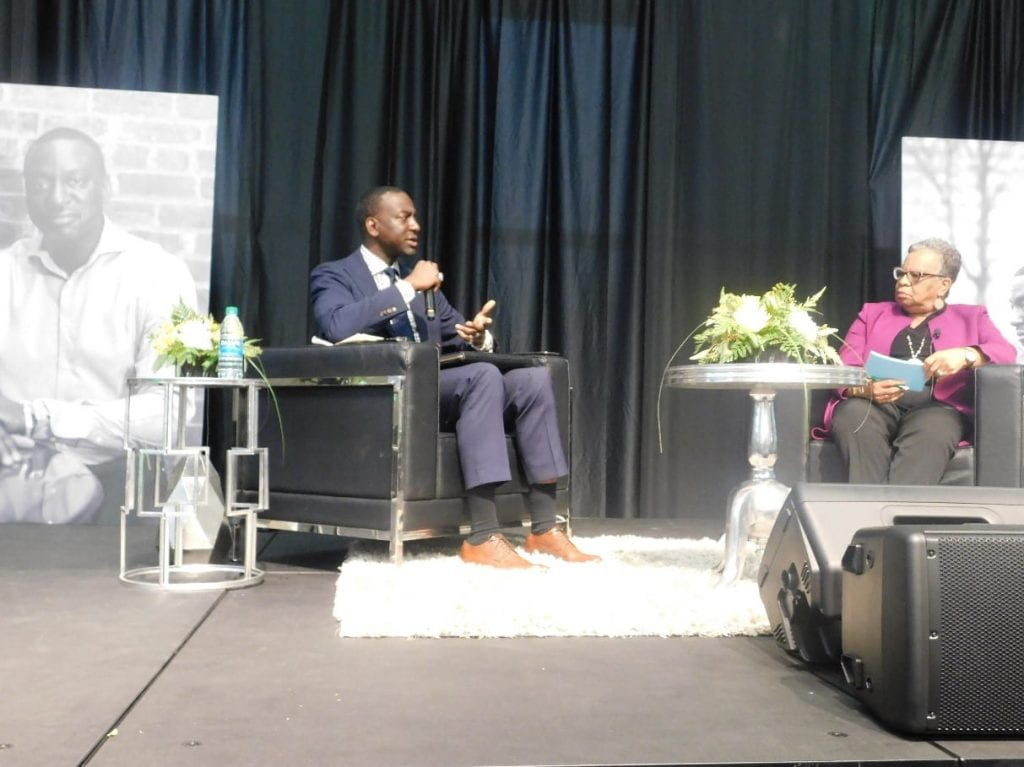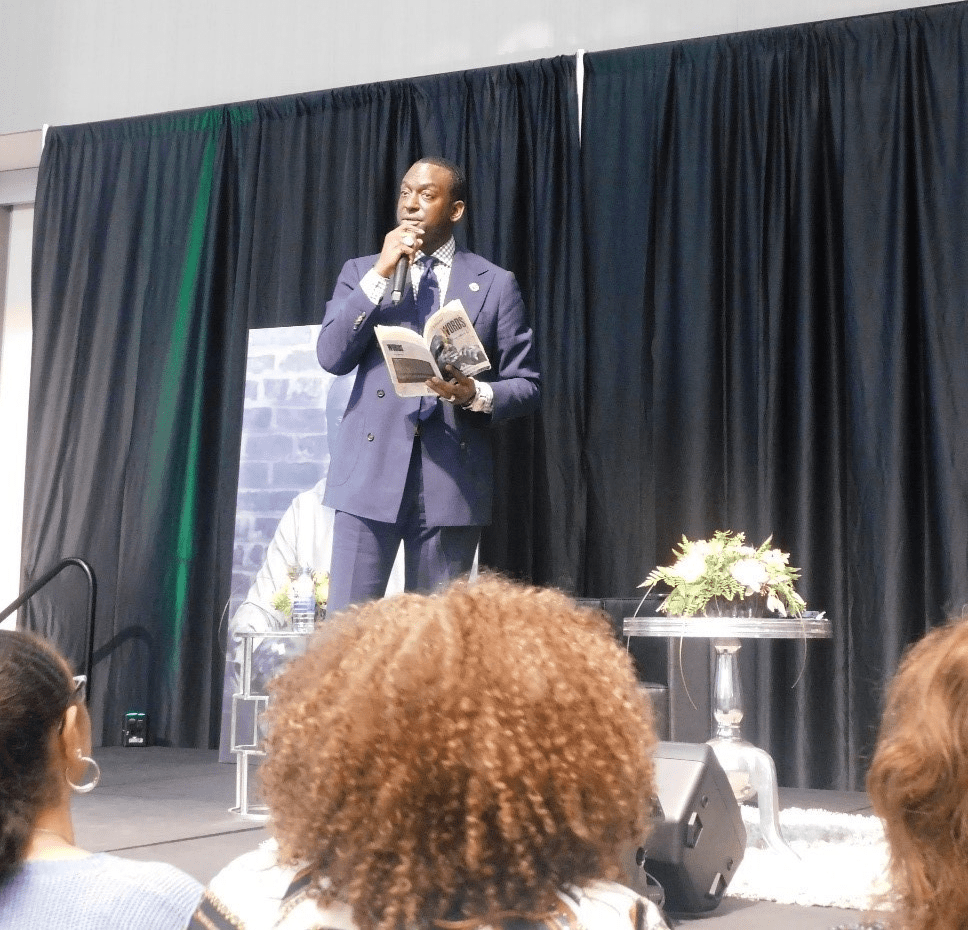On Tuesday, October 8th, the Institute for Human Rights co-sponsored an event alongside UAB’s Office of Diversity, Equity, & Inclusion, Student Multicultural & Diversity Programs, and College of Arts & Sciences to present criminal justice advocate Dr. Yusef Salaam of the Exonerated 5 (formerly known as the Central Park 5). During his conversation with UAB’s Dr. Paulette Patterson Dilworth, they discussed his time incarcerated, race in the 21st century, and the recent Netflix special When They See Us, among other related topics.
In April 1989, following the sexual assault of a white woman in New York City’s Central Park, five young Black and Hispanic youth were convicted for this heinous crime despite inconsistencies in DNA evidence. In the process of weathering the media storm and pressure from local authorities, Salaam claims he had a “spiritual awakening” that was being shaped by the hands of God. About six months into his bid, Salaam was debating if he was doing time or if time was doing him, when an officer approached him and asked, “Who are you?”. After giving the officer his full name, the officer replied, “I know that. You’re not supposed to be here. Who are you?”. This moment changed his entire trajectory because Salaam realized he was born with a purpose. As a result, Salaam earned a college degree while in prison and suggested this accomplishment means he could do anything. He argues that many in the public eye were looking at him with hatred because they saw his future self, an educated Black man fighting for racial and criminal justice.
After serving nearly seven years for a crime he did not commit, a confession and DNA match from Matias Reyes in 2002 allowed the release and exoneration of Salaam as well as Antron McCray, Kevin Richardson, Raymond Santana, and Korey Wise. Aside from Salaam and Wise’s acquaintanceship, the Exonerated Five did not know each other. Due to police profiling, they were rounded up by NYPD, interrogated, and pressured to confess to false narratives about one another, thus having to fight individually for themselves as well as their families. The Exonerated Five never discussed these events among each other because they assumed everyone had the same experience. However, upon a pre-release screening of When They See Us, which Salaam claimed was a “traumatic experience”, the Exonerated Five had the opportunity to process the series of events that would bind them together forever.

Although, the story does not end here. As fate would have it, then future U.S. President Donald Trump actively participated in promoting the execution of the Exonerated Five through an ad in local newspapers. Furthermore, Salaam’s claim that President Trump is responsible for “cosigning folks in Charlottesville” suggests our current cultural, social, and political environment encourages racial and criminal injustice. In response, echoing Carter G. Woodson’s treatise “The Mis-Education of the Negro,” Salaam exclaimed that history is trained and taught into a people. As a result, people of color, namely Black Americans, can become so destroyed by a system that they don’t want to participate. Although, Salaam said such a position suggests, “Non-participation is participation.” Thus, we, ourselves, are the answer.
This brings us to how we, particularly white folks who have orchestrated institutions to disadvantage people of color, can be the change we want to see. As Salaam suggests, “The system is working the way it was designed.” Thus, systemic issues disproportionately affecting people of color, such as police profiling, generational poverty, underfunded schools, and weakened voting rights, must immediately be addressed and reformed. Eradicating these injustices will unlikely be in in our lifetime, although current efforts by Black Lives Matter, Innocence Project, The Sentencing Project, and Woke Vote, among many others, shine a light on what we have, and can, accomplish.
Who are you?

